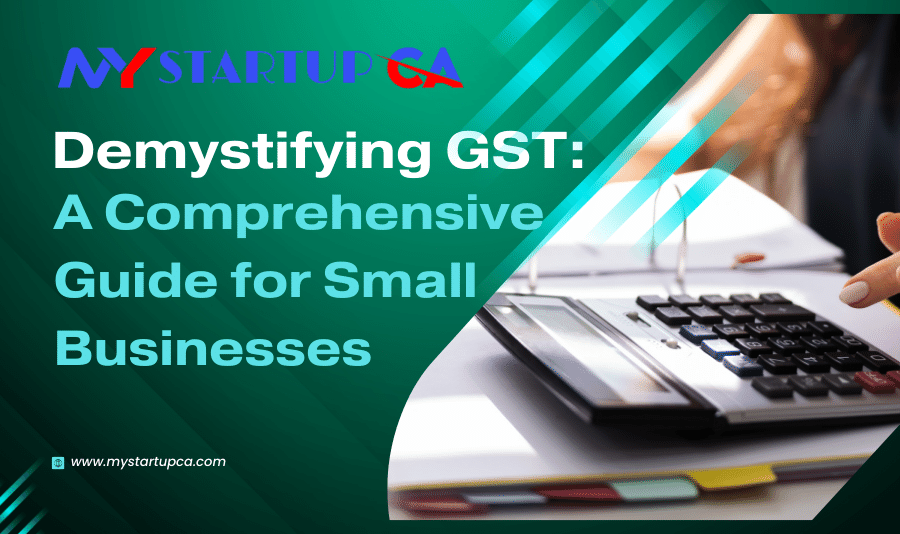
Unlock the complexities of GST with our comprehensive guide for small businesses. From registration procedures to compliance requirements and tax implications, gain a clear understanding of GST to navigate the Indian tax landscape effectively and ensure business success.
MyStartupCA
Goods and Services Tax (GST) is a fundamental part of the Indian tax system, revolutionizing the way businesses pay taxes. For small businesses, understanding GST is essential for compliance and efficient tax management. In this comprehensive guide, we'll demystify GST and provide small businesses with a clear understanding of its concepts, registration process, compliance requirements, and implications.
What is GST?
GST is a comprehensive indirect tax levied on the supply of goods and services across India. It replaced various indirect taxes, including central excise duty, service tax, and value-added tax (VAT), unifying the tax structure and creating a seamless national market. GST is levied at multiple stages of the supply chain, from manufacturing to consumption, with input tax credit (ITC) available at each stage to eliminate double taxation.
GST Registration Process
Eligibility Criteria
Small businesses with an annual turnover exceeding INR 40 lakhs (INR 20 lakhs for northeastern states) are required to register for GST. Additionally, certain businesses, such as those engaged in inter-state supply or e-commerce, must register irrespective of their turnover.
Registration Procedure
The GST registration process is primarily online through the GST portal (www.gst.gov.in). Small businesses need to provide basic information, such as PAN, Aadhaar, business details, bank account information, and proof of business address. Once the application is submitted, a unique GST identification number (GSTIN) is issued, enabling the business to commence operations under the GST regime.
Understanding GST Compliance
GST Returns
Registered businesses are required to file periodic GST returns to report their sales, purchases, and tax liabilities to the government. Small businesses typically file monthly, quarterly, or annually, depending on their turnover and nature of business. It's crucial to file returns accurately and within the specified due dates to avoid penalties and interest.
Invoicing and Billing
GST mandates specific invoice formats and details to be included in invoices issued by businesses. Small businesses must ensure compliance with invoicing requirements to claim input tax credit (ITC) and prevent disputes during audits. Additionally, businesses engaging in e-commerce or supplying to registered taxpayers must generate e-way bills for the movement of goods.
Implications of GST for Small Businesses
Tax Implications
GST has both positive and negative implications for small businesses. On the one hand, GST simplifies the tax structure, eliminates cascading taxes, and provides input tax credit benefits. On the other hand, compliance costs may increase due to the requirement for regular filings and documentation. Small businesses need to assess their tax liabilities and optimize their tax planning strategies under GST.
Business Operations
GST has significant implications for various aspects of business operations, including pricing, supply chain management, and compliance. Small businesses need to adapt their processes and systems to comply with GST requirements and leverage available benefits, such as composition scheme or threshold exemptions, to optimize their operations.
Demystifying GST is crucial for small businesses to navigate the complexities of the tax regime effectively. By understanding the concepts, registration process, compliance requirements, and implications of GST, small businesses can ensure compliance, optimize their tax management strategies, and focus on growth and success in the dynamic Indian market. Staying informed and proactive in GST compliance will help small businesses thrive in the competitive business

